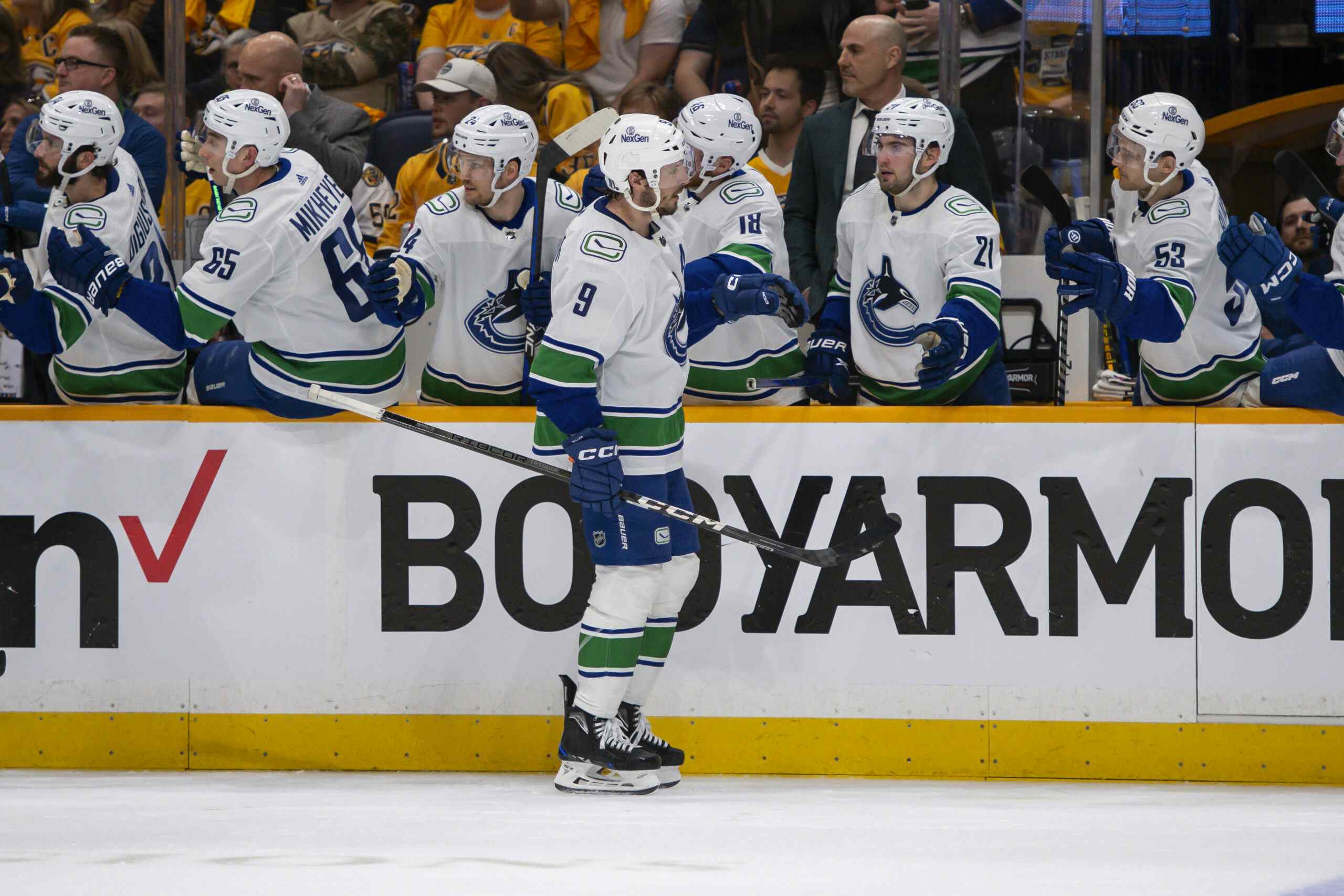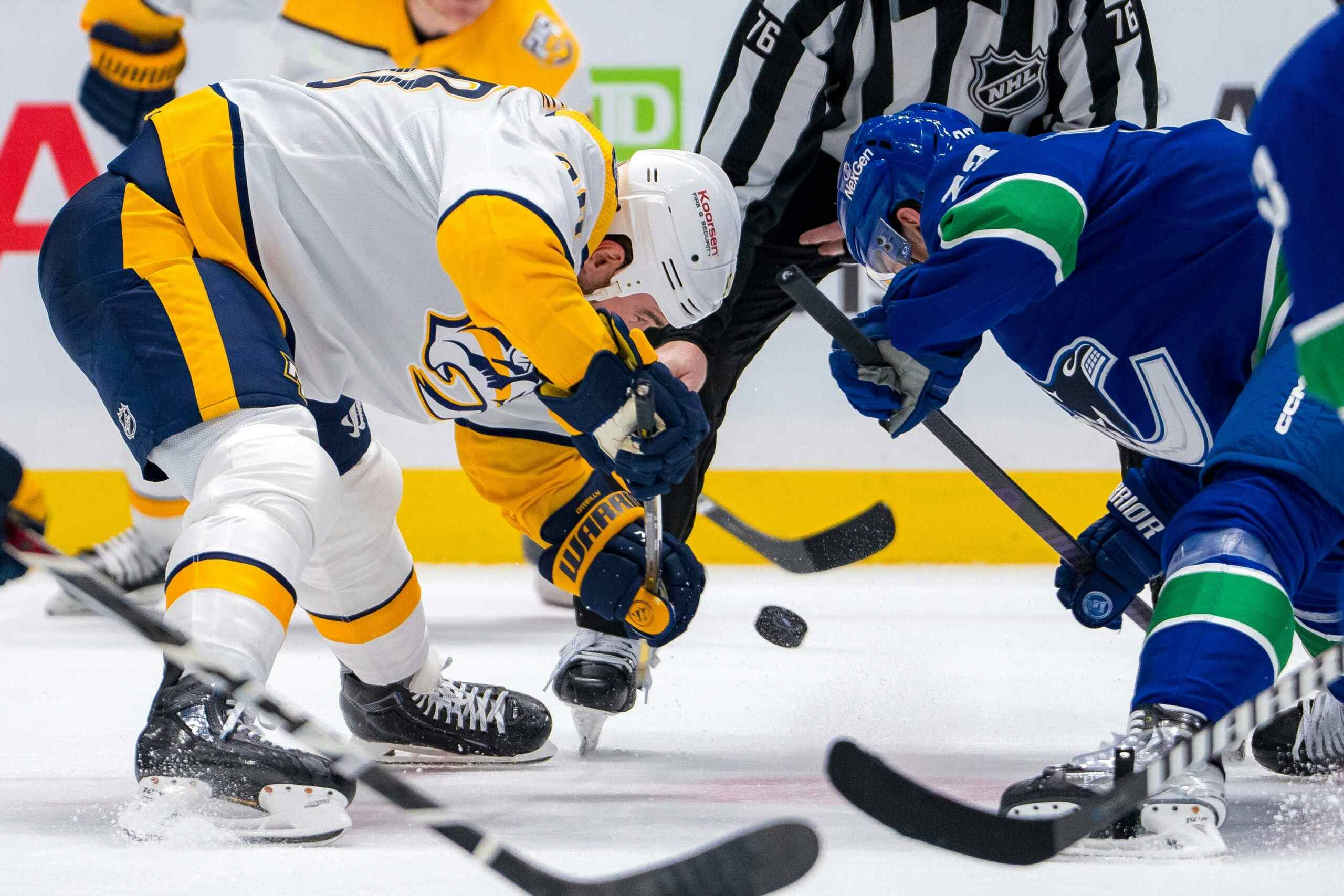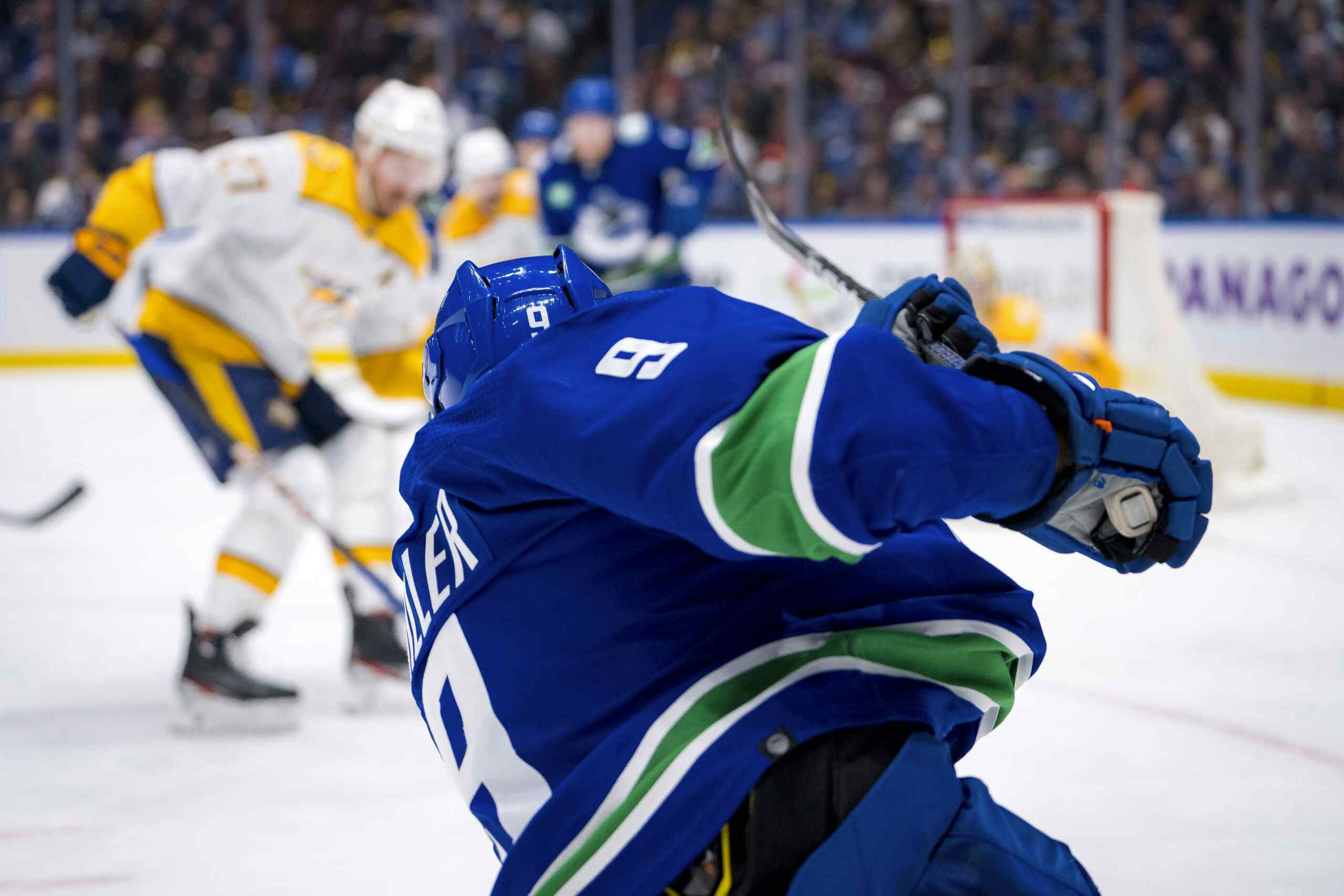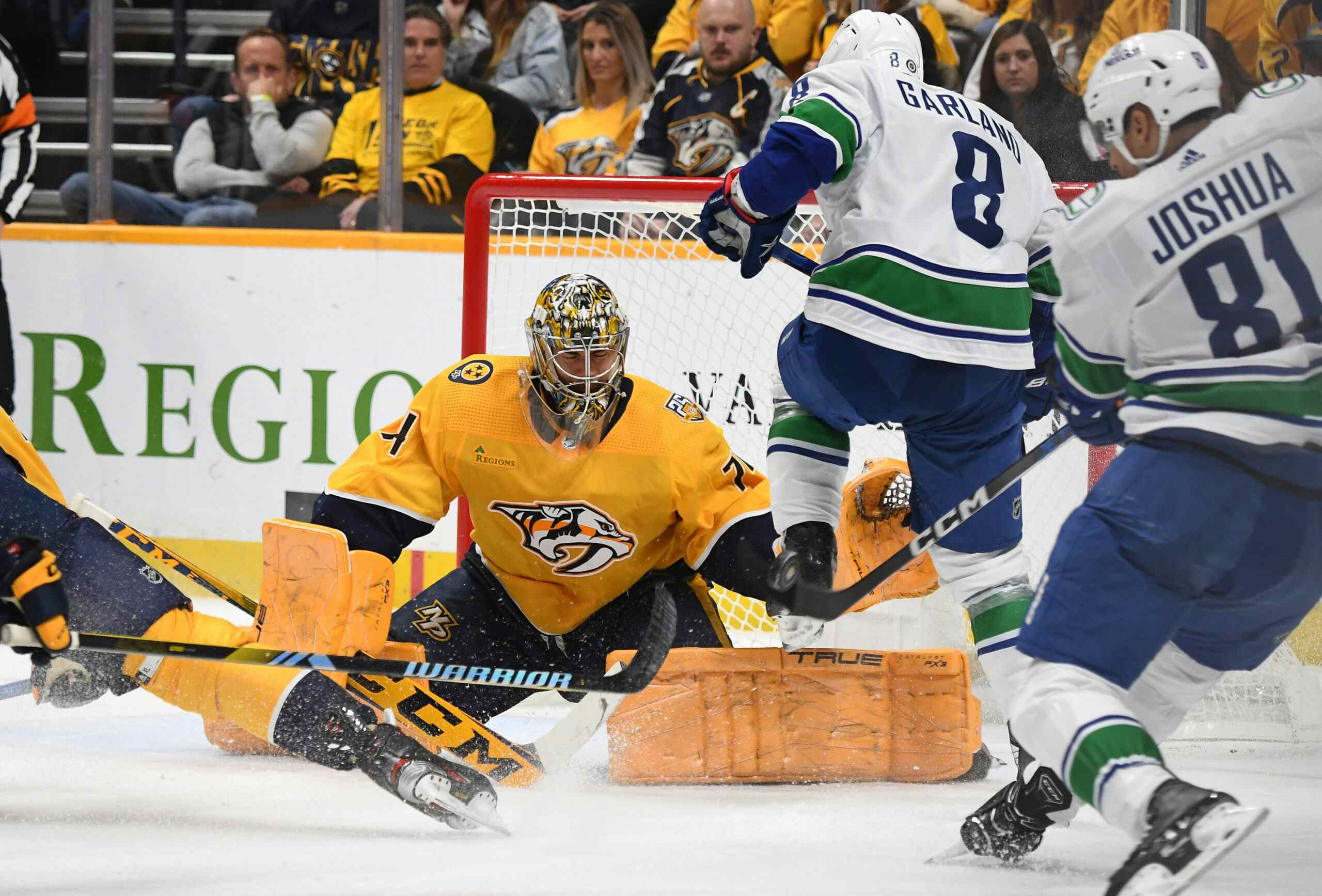Your Guide to the 2014 IIHF World Championships

Would we rather be spending the next two weeks watching, writing about, and discussing the NHL playoffs with the Vancouver Canucks competing in them? Absolutely, there’s no question about it. But with the team long since having been ruled out of contention, we’ll have to make do with the IIHF World Championships, which have expertly assumed the role of being the ultimate consolation prize for both players and fans alike over the years.
With this being a year that coincided with the Winter Olympics, the list of prominent players participating in the tournament is even more diluted than it already is in others. But who can argue with real, live hockey to pass the time.
There are still a medley of different things to look forward to, and we’ll go through it all just past the jump with a guide for what to watch for from a Canucks perspective.
TOURNAMENT FORMAT
Unlike the Winter Olympics – in which there were 12 teams split into 3 different groups – the World Championships involve 16 teams, split into two 8-country groups. As you could’ve guessed, with the increased number of participants comes the inclusion of some nations that you wouldn’t necessarily think of as traditional hockey markets. These include Italy, Kazakhstan, France, and the host country, Belarus. The others are all ones you became at least vaguely familiar with in Sochi.
The 16 teams are split into the following groups, and they’ll play each of their cohorts once apiece in the Round Robin portion, before quarter-final seedings are set based on those very results.
Group A:
- Canada
- Sweden
- Czech Republic
- Slovakia
- Norway
- Denmark
- France
- Italy
Group B:
- USA
- Finland
- Russia
- Switzerland
- Germany
- Latvia
- Belarus
- Kazakhstan
Canucks Representatives
Kevin Bieksa [Team Canada]
Jason Garrison [Team Canada]
Alex Burrows [Team Canada]
Yannick Weber [Team Switzerland]
Nicklas Jensen [Team Denmark]
Jannik Hansen [Team Denmark]
Joacim Eriksson [Team Sweden]
Ronalds Kenins [Team Latvia]
A few notes:
·Kevin Bieksa, in his first taste of International experience, has been named the Captain of the team. He’s joined on the Canadian team by fellow newbie Jason Garrison, as the two are expected to played together on the top pairing. They’ve played ~365 minutes at 5v5 over the past two years together, for whatever it’s worth.
I’m personally interested to see how Garrison does on the big ice, considering how glacial his game had become this past season. It was largely assumed that he was labouring through a pair of lower body injuries, all of which makes his decision to go overseas to play additional hockey rather than recuperating for next year even more questionable. Now he’s trying his hand at blogging, to boot? You’re killing me, Jason!
·Alex Burrows will be playing on the top line with the likes of Nathan MacKinnon and Kyle Turris, which he was presumably a role he was picked for because he’s used to playing 3rd fiddle next to two fantastic players?
·The best part of tournaments like these, in my opinion, is the blast from the past I feel when I see a Miroslav Satan or Ladislav Nagy type pop up on my television again. That, and some of the great names — there are 3 different “Jensen”s on the Danish team, there are all sorts of gems on both the Norwegian, Latvian, and French teams (Per-Åge Skrøder? Jonas Djupvik Løvlie? Vadim Krasnoslobodtsev? Florian Chakiachvili?).
·Expect a lot of parity. There have been 4 different winners the last 4 years, and none of those were the Canadians. The last time they won it all was in ’07, and they haven’t even medalled since ’09. I found the the competition in Sochi to be dragged down a little bit in terms of excitement and interest because of how much better Team Canada really was than all of the other competition, and there’s none of that here. It’s pretty wide open, and there’s at least a handful of countries that could conceivably take home Gold. It makes for a more compelling story.
Schedule of Play
Times are PST. Televised games are in bold. As you’ll notice, unlike with the Olympics there are very few games that are scheduled for unreasonable time slots, which is a great luxury. I hope you and your employers are prepared for a general lack of productivity over the next 2+ weeks.
Friday, May 9:
- Canada vs. France (6:45am, TSN)
- Switzerland vs. Russia (6:45am)
- Czechs vs. Slovakia (10:45am)
- USA vs. Belarus (10:45am, TSN)
Saturday, May 10:
- Sweden vs. Denmark (6:45am)
- Canada vs. Slovakia (10:45am, TSN)
- USA vs. Switzerland (10:45am, TSN2)
Sunday, May 11:
- Sweden vs. Czechs (6:45am)
Monday, May 12:
- Switzerland vs. Belarus (6:45am)
- Canada vs. Czechs (10:45am, TSN)
- USA vs. Russia (11:40am, TSN2)
Tuesday, May 13:
- Sweden vs. Norway (10:45am)
Wednesday, May 14:
- Czechs vs. Italy (6:45am)
- Switzerland vs. Germany (6:45am)
Thursday, May 15:
- Canada vs. Denmark (6:45am, TSN)
- USA vs. Latvia (6:45am, TSN2)
- Sweden vs. France (10:45am)
Friday, May 16:
- Canada vs. Italy (6:45am, TSN)
- USA vs. Kazakhstan (6:45am, TSN2)
- Sweden vs. Slovakia (10:45am)
- Switzerland vs. Finland (10:45am)
Saturday, May 17:
- Czechs vs. Denmark (6:45am)
- Switzerland vs. Kazakhstan (10:45am)
Sunday, May 18:
- Canada vs. Sweden (6:45am, TSN)
- USA vs. Finland (6:45am, TSN2)
- Czechs vs. Norway (10:45am)
Monday, May 19:
- Sweden vs. Italy (10:45am)
Tuesday, May 20:
- Canada vs. Norway (2:45am, TSN)
- USA vs. Germany (2:45am, TSN2)
- Switzerland vs. Latvia (6:45am)
- Czechs vs. Finland (10:45am)
Thursday, May 22:
- Quarterfinals (all on TSN or TSN2)
Saturday, May 24:
- Semi-Finals (both on TSN)
Sunday, May 25:
- Medal Games (both on TSN)
Recent articles from Dimitri Filipovic





